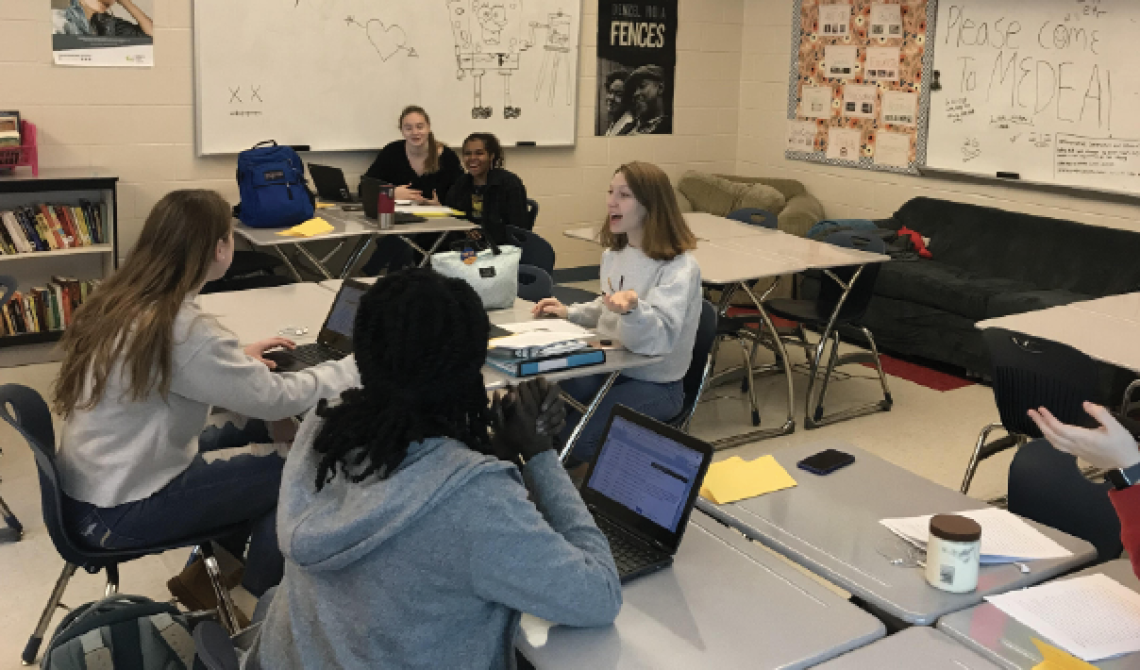Bridgette Adu-Wadier and Lauren Larsen
Your phone vibrates and a notification comes in from the Washington Post: “Trump Dropped G-7 Plan after Pushback from a GOP Tired of Defending Him,” “Ohio Counties, Drug Firms Reach $260 million Deal in Opioid Case,” “Dallas Tornado Devastates Homes, Leaves Thousands without Power.” Every day, we receive notifications about current events from around the world that are shaping our global society, but why do we never discuss these events in the classroom?
Current events and politics, though regarded as hot topics, are not discussed at school as much as they should be. For T.C. and students across the country, discussion of what is going on in the world is crucial to our development into the influential citizens we hope to become. Our teachers, parents, and administrators constantly regard us as “the future,” yet classroom conversations about issues that will affect us long into adulthood are often pushed to the side.
In U.S. History, we learn about slavery, the Revolutionary War, and the Great Depression. We are familiar with these past events in history, but not as much with the impact that they have on our current political climate. Though the news is the last thing on teachers’ minds when they are rushing to get through the curriculum, integrating current events into any subject should be a seamless, non-cumbersome task.
Simply mentioning an article about a new scientific discovery in biology class and asking what students think about it can go a long way. Sparking a small discussion about a recent study on income and wealth inequality in economics or history class would help realize the relevance of the Gilded Age.
However, this lack of conversation in classrooms is not solely rooted in teachers’ need to get through the curriculum, but in the hyper-sensitivity of the upcoming generation.
As a society, “Generation Z,” those currently in school, have become more sensitive. The world is facing the need to “tiptoe” around the truth in order to spare the feelings of others. This has caused neglect of critical conversations about politics and our future.
The sense of opposition and disagreement,in any setting seems to “trigger” many Gen Z people. Young adults, when faced with challenges to their belief systems and ideals, resort to either over-reaction or non-response as these topics are deemed “sensitive.” No one knows how to have an argument anymore.
Over the decades, arguments have been transformed into emotion-based confrontations between people. It has not always been like that. It used to be a fact-based logical discussion about a particular topic; two people of opposing views converse about their beliefs to find a common middle-ground. Now, that sense of interaction is dead.
In today’s society, discussions are taken too personally and has resulted in the “bite your lip” phenomenon: if you do not agree, do not even try to make your disagreement known, because someone might get offended.
“Cancel culture” and the “feeling of being attacked” is widespread and has inspired a national sense of silence disguised as “inoffense.” We need to kill this idea in classrooms and actually have conversations about current events.
Now, there are so many resources out there to help teachers and students create a culture of political discussion. PBS, for example, has a wealth of current events lesson plans on its education blog, Extra. Complete with articles, questions and other activities, the site is a land mine of short, quality current events discussion starters. This could be the first step towards increased classroom conversation about today’s issues.



